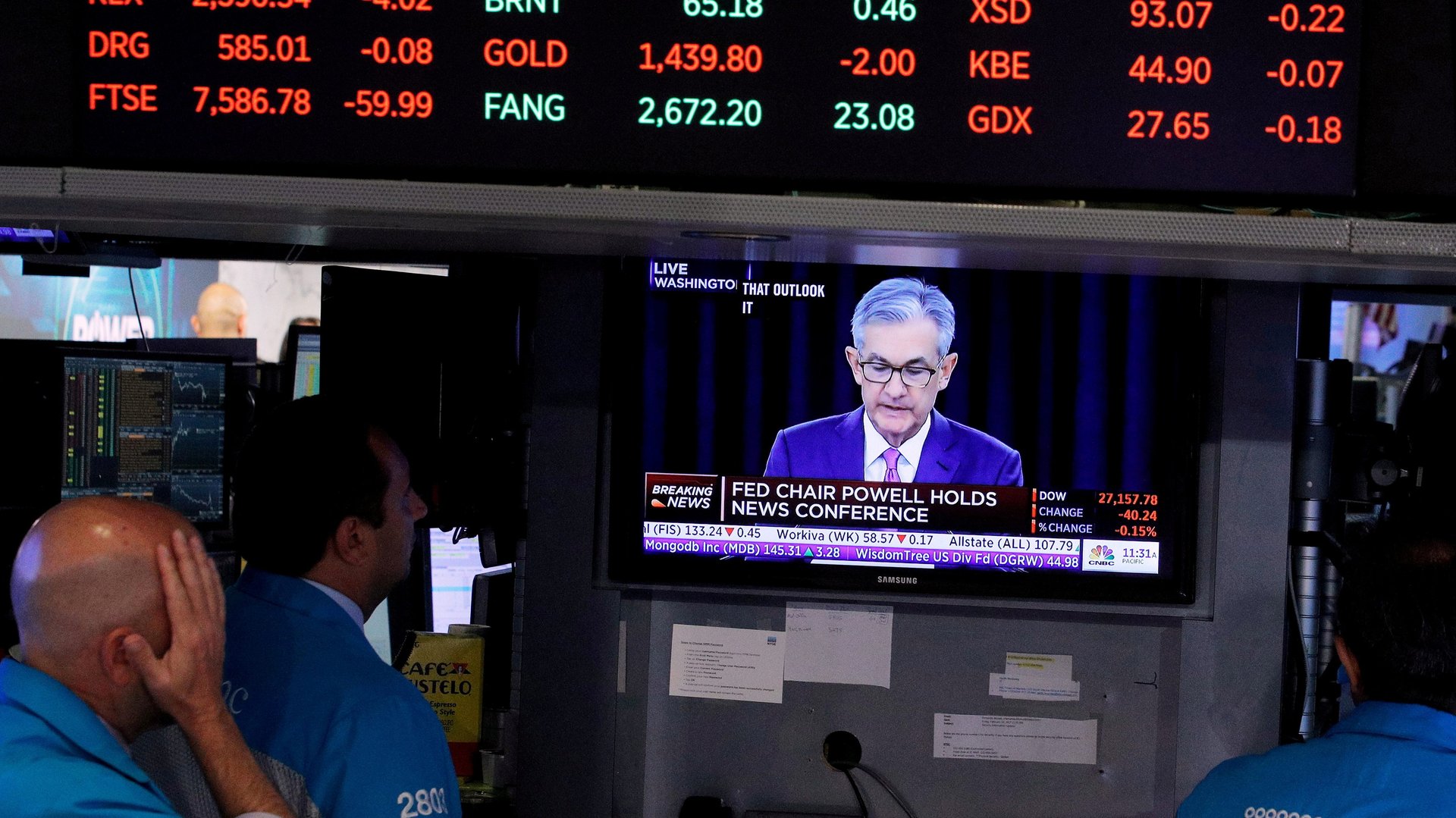If inflation isn’t “transitory,” how else should the Fed describe it?
The central banker’s job description demands a subtle sense of semantics: A stray word or misused phrase can move markets and rock economies. This holiday season, it appears, Jerome Powell, the chair of the US Federal Reserve, will spend his days musing over the meanings of the word “transitory.”


The central banker’s job description demands a subtle sense of semantics: A stray word or misused phrase can move markets and rock economies. This holiday season, it appears, Jerome Powell, the chair of the US Federal Reserve, will spend his days musing over the meanings of the word “transitory.”
Through 2021, as the world has tried to recover from the covid-19 pandemic, Powell and other Fed officials have described rising prices as part of a pattern of transitory inflation. But on Nov. 30, Powell said he wants to retire the word. It wasn’t doing its job, he explained while testifying to the Senate Banking Committee. “It’s probably a good time to retire that word and explain more clearly what we mean.”
The debate surrounding inflation this year has hinged on “transitory” and its interpretations; those outside the wonky world of economics seem to infer an altogether different meaning to Powell’s. The tension shows just how difficult it is to communicate what’s happening to prices during a pandemic that has shifted consumer demand from services to goods and jammed global supply chains. But it also shows the limits of the English language to describe the complex, abstract phenomenon of inflation.
What does transitory inflation mean?
The Fed has been using “transitory” to imply that prices rising at the current pace would not leave “a permanent mark in the form of higher inflation,” Powell said. Economists have split up into team “transitory” and team “persistent” when talking about whether or not elevated inflation would last beyond the pandemic pressures that are backing up the supply chain. But too often, Powell said, people are interpreting the word as a signal of duration: “a sense of [the] short-lived.”
And since brevity is in the eyes of the beholder, the Fed’s repeated use of the word “transitory” has begun to stir up impatience. In October, Urban Dictionary supplied its own definition of “transitory”: “Word used by the Federal Reserve to describe ‘perpetual.’”
It isn’t as if Powell is rethinking what the ongoing price rises mean. “Fundamentally, his view hasn’t changed about what’s going to happen to inflation next year,” said David Beckworth, a former international economist at the US Treasury Department. “The problem is that transitory has come to mean by many that inflation would be up for a few months this year and then come down for a few months, and if that’s the popular definition, then yes, transitory has outlived its shelf life.”
We need a different adjective for inflation
For most economists speaking of transitory inflation, the intention is to describe something that is transient and impermanent, Beckworth said. When the pandemic subsides, they want to convey, inflation will drop back down close to the Fed’s target of 2% inflation on an annual basis. So what’s a good word to describe that?
Beckworth didn’t offer a phrase or word to sum it all up. Riccardo Trezzi, a former economist at both the Fed and the European Central Bank (ECB), suggested, “You can call it inflation trend, underlying inflation, inflation expectations,” pointing out that the chief problem with “transitory” is that the word “doesn’t communicate how persistent something can be.”
Across the Atlantic, Christine Lagarde, president of the ECB, has been resorting to the word “temporary.” But another term, closer to Powell’s meaning, emerged in remarks that Philip Lane, the ECB’s chief economist, made last month. “This period of inflation is very unusual and temporary, and not a sign of a chronic situation,” Lane said. The term “not chronic” captures something of the Fed’s idea: that today’s inflation is not systemic, and that it won’t persist for a long time.
German has words for everything—even to describe inflation
Or perhaps Powell could look to other languages for inspiration. He could deploy a standard Mexican delay tactic and use the phrase al ratito (link in Spanish,) literally “in a little while,” but technically an indefinite portion of time that could be any moment in the future. Or Powell could tell the public that high inflation will stop rising at such a quick pace ahorita (Spanish)—which could be right now, later, or never—the ultimate vague answer.
Daniel Hole, the director of the Institute of German Studies and Linguistics at the University of Stuttgart, suggested vorübergehend, which literally means “over-going” in German. “It does suggest brevity in many cases, but it doesn’t strictly speaking imply it,” Hole said. Prices, Powell might say, are probably nur vorübergehend rising; they’ll come back down eventually.
Another German word, the evocative zwischenzeitig, connotes an “in-between-time,” said Henrike Lähnemann, a professor of medieval German literature and linguistics at the University of Oxford. Like an interregnum, zwischenzeitig implies a phase between more stable periods. The US experienced years of inflation running below 1% and will return to a rate near 2%, a Fed statement may point out, adding that prices are experiencing only a zwischenzeitigen rise.
Lähnemann proposed another phrase, im Schwebezustand, meaning “in a state of suspense.” When it comes to waiting for prices to drop—or indeed for the pandemic to end, or for supply chain issues to sort themselves out—Americans are certainly im Schwebezustand. As is Powell, surely, in wanting to stop talking about inflationary pressures at all.